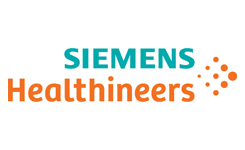Haematology
Morphology Quiz
Haematology
Morphology Quiz
9am – 10am BST, 23 September 2025 ‐ 1 hour
Haematology
Abstract
A varied selection of blood cell Morphology cases, from the everyday to the complex.
This year’s session features the IBMS Morphology Quiz 2025 – All things neutrophil, an online multiple-choice quiz open to all. It includes 10 interactive cases you can complete before Congress.
The quiz is anonymous and beginner-friendly, with immediate laboratory and clinical feedback—along with explanations of morphology features and educational insights around each case.
You can take the quiz here.
Speakers

Luke Carter-Brzezinski MBChB, BSc, MD, MRCP, FRCPath
Consultant Haematologist, Manchester NHS Foundation Trust

Dr Michelle Brereton
Chief Biomedical Scientist, Manchester University NHS Foundation Trust
What is sickle cell disease?
Haematology
What is sickle cell disease?
10.30am – 11am BST, 23 September 2025 ‐ 30 mins
Haematology
Learning outcomes
The delegate should be able to:
- Apply correct terminology when describing sickling disorders
- Identify the main molecular differences between the common sickling disorders
- Outline the differences in the blood count between the common sickling disorders
- Recognise the morphological differences between the common sickling disorders
Speakers

Professor Barbara Bain
Professor of Diagnostic Haematology, St Mary's Imperial College Healthcare NHS Trust
WHO vs. ICC classification - case studies for the specialist portfolio
Haematology
WHO vs. ICC classification - case studies for the specialist portfolio
11am – 11.30am BST, 23 September 2025 ‐ 30 mins
Haematology
Learning outcomes
Delegates will:
- Be able to recognise the two main classification systems used for the diagnosis of Haematological Malignancy
- Understand why a second classification was introduced
- Recognise the differences between the two systems using case studies
- Understand the requirements for the Specialist Portfolio (V005) for the Classification of Haematological Malignancies & Investigation and Diagnosis of Haematological Malignancies modules
Speakers

Nicki Lawrence
Principal Biomedical Scientist, University Hospitals of North Midlands NHS Trust
'Clash of the Titans’ – WHO vs ICC case studies and panel discussion
Haematology
'Clash of the Titans’ – WHO vs ICC case studies and panel discussion
11.30am – 12pm BST, 23 September 2025 ‐ 30 mins
Haematology
Learning outcomes
Delegates will:
- Be able to recognise the two main classification systems used for the diagnosis of Haematological Malignancy
- Understand why a second classification was introduced
- Recognise the differences between the two systems using case studies
Speakers

Professor Barbara Bain
Professor of Diagnostic Haematology, St Mary's Imperial College Healthcare NHS Trust

Luke Carter-Brzezinski MBChB, BSc, MD, MRCP, FRCPath
Consultant Haematologist, Manchester NHS Foundation Trust

Dr Michelle Brereton
Chief Biomedical Scientist, Manchester University NHS Foundation Trust

Nicki Lawrence
Principal Biomedical Scientist, University Hospitals of North Midlands NHS Trust
How the lab can prevent stroke and save lives with urgent DOAC levels
Haematology
How the lab can prevent stroke and save lives with urgent DOAC levels
9am – 9.30am BST, 24 September 2025 ‐ 30 mins
Haematology
Abstract
Major bleeding is a rare but often catastrophic consequence of anticoagulation. When this happens, doctors like to administer anticoagulant reversal agents to restore normal haemostasis. However, although this is an intuitive practice there is only limited evidence of benefit.
There is also evidence of harm - a significant risk of stroke and heart attack with the reversal agent andexanet alfa. Urgent drug levels are feasible but rarely done. However, when levels are later evaluated in blood samples taken at the time of reversal, a fifth of patients have levels less than 50 ng/mL - the recommend cut-off for treatment. This means that if we can introduce urgent levels, then we can prevent unnecessary treatment thus prevent thrombosis, save lives, and save money.
This will be an exciting, engaging talk, with a few surprises. Don't miss it!
Learning outcomes
Delegates will understand:
- The mechanism of action of available reversal agents
- The limitations of the evidence of benefit for reversal agents
- How laboratory testing could make a difference in the care of these patients
Speakers

Dr Richard Buka PhD, MRCP, MBChB (Hons), BMedSc (Hons)
Clinical Lecturer in Haematology, Birmingham Women’s and Children’s NHS Foundation Trust
Exploring novel biomarkers in multiple myeloma
Haematology
Exploring novel biomarkers in multiple myeloma
9.30am – 10am BST, 24 September 2025 ‐ 30 mins
Haematology
Abstract
This presentation investigates the diagnostic and therapeutic potential of plasma Galectin-3 and circulating microRNAs (miRNAs) in Multiple Myeloma (MM) progression. MM evolves from precursor stages such as Monoclonal Gammopathy of Undetermined Significance (MGUS) and Smouldering Multiple Myeloma (SMM), with progression influenced by genetic alterations and interactions within the bone marrow microenvironment.
Galectin-3, a β-galactoside-binding lectin, plays a key role in bone remodelling and immune suppression through its interaction with Lymphocyte Activation Gene-3 (LAG-3) and modulation of osteoclast activity. Elevated plasma Galectin-3 levels in symptomatic MM, especially in patients with lytic bone lesions, suggest its involvement in bone pathology and disease advancement.
The study also identifies several differentially expressed miRNAs, including miR-133a-3p and miR-146a-5p, which are significantly upregulated in symptomatic MM. Notably, miR-133a-3p correlates with Galectin-3 levels, indicating a functional miRNA–Galectin-3 axis that may contribute to osteoclast-mediated bone resorption. These findings provide a framework for future studies aimed at elucidating the miRNA–Galectin-3 axis in MM pathogenesis and highlight the potential of these biomarkers as predictive tools and therapeutic targets in Multiple Myeloma.
Learning outcomes
Through an overview of Multiple Myeloma delegates will be able to:
- Understand the role of novel biomarkers in tracking disease progression in multiple myeloma.
- Identify key biomarkers and their relevance in multiple myeloma.
- Evaluate the clinical implications of novel biomarkers for disease progression.
Speakers

Can we use biomarkers to predict cancer-associated thrombosis?
Haematology
Can we use biomarkers to predict cancer-associated thrombosis?
10.30am – 11am BST, 24 September 2025 ‐ 30 mins
Haematology
Abstract
- Overview of Cancer-Associated Thrombosis - its prevalence and why it is important to diagnose.
- Predictive Models which can be used to predict cancer-associated thrombosis including their pitfalls.
- How biomarkers could be used to aid this, giving a synopsis of Alison's DClinSci thesis.
Speakers

Alison Brown CSci, FIBMS
Lead Healthcare Scientist - Haematology and Haemostasis, The Newcastle upon Tyne Hospitals NHS Foundation Trust
FVII/FVIIa in preeclampsia
Haematology
FVII/FVIIa in preeclampsia
11am – 11.30am BST, 24 September 2025 ‐ 30 mins
Haematology
Speakers
Gene therapy and novel therapies in haemophilia in the era of precision medicine
Haematology
Gene therapy and novel therapies in haemophilia in the era of precision medicine
11.30am – 12pm BST, 24 September 2025 ‐ 30 mins
Haematology
Speakers
Dr Rashid Kazmi
Consultant Haematologist, University Hospital Southampton NHS Foundation Trust
Flow cytometry for Measurable Residual Disease Monitoring
Haematology
Flow cytometry for Measurable Residual Disease Monitoring
2pm – 2.30pm BST, 24 September 2025 ‐ 30 mins
Haematology
Learning outcomes
Delegates will:
- Understand aspects of testing that differ from conventional flow cytometry
- Understand the clinical utility of measurable residual disease testing for Haematological malignancy
Speakers
Heparin-induced thrombocytopenia (HIT) versus thrombotic thrombocytopenic purpura (TTP): A clinical case study
Haematology
Heparin-induced thrombocytopenia (HIT) versus thrombotic thrombocytopenic purpura (TTP): A clinical case study
2.30pm – 3pm BST, 24 September 2025 ‐ 30 mins
Haematology
Abstract
Thrombocytopenia is one of the most common abnormalities encountered daily in the Haematology laboratory. The differential diagnoses are broad and include pseudothrombocytopenia due to platelet clumping, hepatic dysfunction, infection or sepsis, drug-induced causes, bone marrow or immune disorders, and microangiopathic haemolytic anaemia (MAHA). Prompt laboratory diagnosis is crucial, as some of these conditions can be develop rapidly and may be life-threatening without urgent intervention.
A 71-year-old male presented with shortness of breath and progressive oedema over the previous few weeks. He was found to have had a small pulmonary embolism, and began treatment dose Dalteparin, (low molecular weight heparin). His platelet count began to fall rapidly, confirmed by an urgent blood film, which showed no evidence of haemolysis at this time. Initial diagnosis was suspected to be Heparin Induced Thrombocytopenia (HIT), in which antibodies against heparin-platelet factor 4 complexes develop, causing a drop in platelet count, with thromboembolic complications. The patient was switched to Argatroban, then clinical scoring and laboratory testing was performed, resulting in a positive diagnosis of HIT. The thrombocytopenia remained suspiciously unresolved days later and an urgent blood film revealed the presence of schistocytes and marked polychromasia. The clinical picture suggested Thrombotic Thrombocytopenic Purpura (TTP), confirmed by urgent laboratory testing. TTP is a life-threatening MAHA, in which autoantibodies react against ADAMTS13 (a von Willebrand Factor cleaving protease), causing a severe deficiency, leading to thrombosis and intravascular haemolysis, and can be fatal if commencement of plasma exchange is not initiated urgently.
This case study highlights the importance of prompt and accurate diagnosis in the case of a new or progressive thrombocytopenia, and the value of further investigation of unexpected results.
Learning ouctomes
- Understand the pathophysiology of HIT
- Understand the pathophysiology of TTP
- Highlight the importance of continued monitoring of laboratory results and knowledge of pathological conditions in your discipline
- Gain an overview of the diagnostic testing involved in both HIT and TTP
Speakers

Alanna Masson BSc, MSc, FIBMS
Specialist Biomedical Scientist, Ninewells Hospital, Dundee
When multiple inherited red cell disorders lead to severe anaemia – a case study
Haematology
When multiple inherited red cell disorders lead to severe anaemia – a case study
3pm – 3.30pm BST, 24 September 2025 ‐ 30 mins
Haematology
Learning Outcomes
Delegates will gain knowledge on:
- How inherited red cell disorder can present
- How the symptoms may be exacerbated by co-inheritance of multiple disorders.
Speakers

Advanced Roles
Haematology
Advanced Roles
4pm – 4.30pm BST, 24 September 2025 ‐ 30 mins
Haematology
Speakers
David Gurney DBMS FIBMS CSci
Operational Manager and Lead Scientist , Haemostasis Laboratory at University Hospitals Birmingham
Exams in Haematology: Advancing your career
Haematology
Exams in Haematology: Advancing your career
4.30pm – 5pm BST, 24 September 2025 ‐ 30 mins
Haematology
Abstract
Delegates will hear about the IBMS exams in Haematology, including the new Diplomas of Expert Practice.
The talk will include information about the content of these exams, advice on how to study and prepare for them, and how taking the IBMS exams may help further with career development.
Speakers
Unstable haemoglobin
Haematology
Unstable haemoglobin
9am – 9.30am BST, 25 September 2025 ‐ 30 mins
Haematology
Abstract
This presentation will provide information on:
- An introduction to unstable Hb
- Causes for unstable Hb
- Clinical presentation
- Laboratory result
- Laboratory investigation
- Management of unstable Hb
Speakers

Total B12 or not Total B12 that is the question? Recommendations from NICE 2024 guidelines. NG239, Vitamin B12 deficiency in over 16s: diagnosis and management
Haematology
Total B12 or not Total B12 that is the question? Recommendations from NICE 2024 guidelines. NG239, Vitamin B12 deficiency in over 16s: diagnosis and management
9.30am – 10am BST, 25 September 2025 ‐ 30 mins
Haematology
Abstract
The presentation provides an in-depth overview of Vitamin B12 deficiency, its causes, diagnosis, and management as per the NICE 2024 guidelines (NG239). It begins by outlining the role of Vitamin B12 and the clinical signs, symptoms, and causes of its deficiency. Key causes include dietary insufficiency, pernicious anaemia, gastric conditions, intestinal disorders, certain medications, and age-related decline.
The presentation highlights the challenges in diagnosing Vitamin B12 deficiency, such as vague symptoms, lack of a 'gold standard' test, and issues with current testing methods. It compares Total B12 and Active B12 assays, noting the proposed increased specificity and sensitivity of the latter. The NICE guidelines recommend using either Total B12 or Active B12 for initial testing and considering confirmatory tests like MMA or Homocysteine for indeterminate results.
The presentation also discusses the clinical limitations and challenges of confirmatory tests, including the need for specialised equipment and the influence of diet and lifestyle on test results. It emphasizes the importance of symptom-based diagnosis and the need for healthcare provider education to improve diagnostic accuracy.
In conclusion, the presentation calls for improvements in B12 deficiency diagnosis, including establishing reference ranges for age, sex, and ethnicity, standardising diagnostic criteria and assays, and raising awareness among healthcare providers and patients.
Learning outcomes
Delegates will gain knowledge on:
- Vitamin B12 deficiency, clinical signs and symptoms
- Pros and cons of Total B12 testing versus Active B12
- Other available assays to identify B12 deficiency
- NG239 NICE guidance on B12 deficiency diagnosis
Speakers

Jayne Parkes
Principal Biomedical Scientist, Black Country Pathology Services, The Royal Wolverhampton NHS Trust
Reticulocyte haemoglobin EQA programme: Two years and still counting
Haematology
Reticulocyte haemoglobin EQA programme: Two years and still counting
10.30am – 11am BST, 25 September 2025 ‐ 30 mins
Haematology
Abstract
Established parameters for the investigation of suspected iron deficiency (e.g. ferritin, transferrin saturation, haemoglobin and red cell indices) have recognised limitations due to confounding factors that affect their sensitivity and specificity. Reticulocyte Haemoglobin Content (RHC) is considered a reliable, early biomarker of iron deficiency or iron restriction, which also demonstrates a response to iron therapy and is recommended for the diagnosis and management of iron deficiency in chronic kidney disease. RHC parameters are offered on all major automated haematology analyser platforms, although they vary in their methodologies and nomenclature. UK NEQAS Haematology has developed an EQA programme for the performance assessment of analysers providing this parameter.
The first steps in the programme development were to identify a stable and effective survey material, followed by the scaling up of the production process to accommodate all the laboratories interested in participation. Four full RHC EQA distributions have been made in 2023-2024, with results returned from between 157 and 212 instruments in the UK. The main instrument groups are Sysmex XN10 and XN20 (reporting Ret-He), Abbott Alinity hq (reporting MCHr) and Siemens Advia 2120i (reporting CHr). The samples distributed have been from normal blood donors and consented patients undergoing therapeutic venesection, with varying degrees of iron deficiency. The surveys have shown consistent inter method differences, although the results returned by all platforms are consistent with the clinical case details. This new EQA programme provides a picure of the state of the art in reticulocyte haemoglobin concentration performance, which will support the use of RHC as part of the repertoire of tests for the identification of iron deficiency.
Learning Outcomes
This presentation will:
- Describe the clinical utility of Retic Hb content in the diagnosis of iron deficiency.
- Explain the development of external quality assessment for new parameters in automated counting.
- Review the performance data from the first two years of the UK NEQAS Retic Hb EQA programme.
Speakers

An interesting case study of childhood malaria in East Kent
Haematology
An interesting case study of childhood malaria in East Kent
11am – 11.30am BST, 25 September 2025 ‐ 30 mins
Haematology
Abstract
Presentation of a cryptic malaria case study that was investigated by UKHSA and NHSBT in a patient with beta thalassaemia and no foreign travel.
Learning outcomes
Through the discussion of a case study delegates will:
- Understand the roles of the malaria reference laboratory and bodies such as UKHSA in malaria tracking.
- Understand the importance and incidence of thrombocytopenia.
- Better appreciation of expecting the unexpected and incidental findings in the laboratory.
- Understand the importance of relevant clinical information and communication.
Speakers
Mr Graeme Bain
Senior Biomedical Scientist, East Kent Hospitals University NHS Foundation Trust, Queen Elizabeth the Queen Mother Hospital
Learning the lessons from blood and blunders
Haematology
Learning the lessons from blood and blunders
11.30am – 12pm BST, 25 September 2025 ‐ 30 mins
Haematology
Abstract
We will review three key learning outcomes of the RCPath investigation initiated following the publication of the article Blood and Blunders.
- Staff competency
- What EQA does and does not do!
- Who are we loyal too!
Learning outcomes
This lecture examines important lessons from a diagnostic failure in UK laboratories, where more than 5,000 patients were recalled due to misinterpretation of immunoglobulin patterns. The investigation uncovered systemic issues in staff competency, assessment of interpretive skills, and quality assurance. Rev Dr Sinclair emphasises the need for clearly defined competency levels—Trainee, Reporter, and Advanced—supported by gateway and maintenance activities. He critiques the limitations of External Quality Assessment (EQA), noting that while EQA can identify performance problems, it cannot evaluate interpretive nuance.
The lecture promotes internal concordance schemes to address these gaps. Ethical considerations regarding loyalty and whistleblowing are discussed, urging staff to prioritise patient safety over institutional allegiance. Finally, Rev Dr Sinclair highlights the importance of fostering a positive learning environment through agency, ownership, and formative assessment, ensuring ongoing professional development and safeguarding patient outcomes.
Speakers

Rev Dr Gordon Sinclair
Senior Lecturer in Biomedical Science , London Metropolitan University
Meet The Experts
Haematology
Meet The Experts
12.45pm – 2pm BST, 25 September 2025 ‐ 1 hour 15 mins
Haematology
Speakers

Nicki Lawrence
Principal Biomedical Scientist, University Hospitals of North Midlands NHS Trust
Gavin Knight
Bone marrow disorders
Haematology
Bone marrow disorders
2pm – 2.30pm BST, 25 September 2025 ‐ 30 mins
Haematology
Speakers
Dr Fiona Clark
Consultant Haematologist, University Hospitals of North Midlands NHS Trust
The importance of the laboratory in diagnosis and research in anti-PF4 mediated thrombotic thrombocytopenic syndromes
Haematology
The importance of the laboratory in diagnosis and research in anti-PF4 mediated thrombotic thrombocytopenic syndromes
2.30pm – 3pm BST, 25 September 2025 ‐ 30 mins
Haematology
Speakers
Dr Pip Nicolson
Associate Professor in Cardiovascular Science, University of Birmingham
Is the future of full blood count testing in sight?
Haematology
Is the future of full blood count testing in sight?
3pm – 3.30pm BST, 25 September 2025 ‐ 30 mins
Haematology
Abstract
Point-of-care testing (POCT) for Full Blood Counts (FBCs) is a rapidly evolving field of biomedical science. POCT for FBCs offers faster results and greater flexibility in terms of testing settings - from emergency departments to remote clinics.
This talk explores the latest developments in POCT FBCs, including cutting-edge platforms like the HemoScreen (PixCell Medical), Abacus 5 CT (Diatron) and Sight OLO (Sight Diagnostics). It will also highlight real-world experience with the verification and validation of the Sight OLO in a clinical setting at Royal Stoke University Hospital (University of North Midlands NHS Foundation Trust); offering practical insights into performance, usability and impact.
We will examine how these technologies compare to traditional FBC testing and the challenges of ensuring quality and integration. We will see how these technologies are improving diagnostic speed and access across a variety of departments. We will discuss what the future holds for FBC testing beyond the laboratory.
Learning outcomes
Delegates will:
- Be introduced to the Sight OLO and other AI based platforms
- Gain an understanding of the principles of AI imaging platforms in haematology
- See a comparison of results from the Sight OLO to those from a lab-based FBC analyser
- Gain an appreciation of the potentially utility of the Sight OLO and other AI-based testing platforms in the future
Speakers

Annabel Booth-Hankey
Senior Biomedical Scientist - Cross-Site Training Coordinator, North Midlands & Cheshire Pathology Service, University Hospitals of North Midlands
Opening and Closing Plenary programmes















